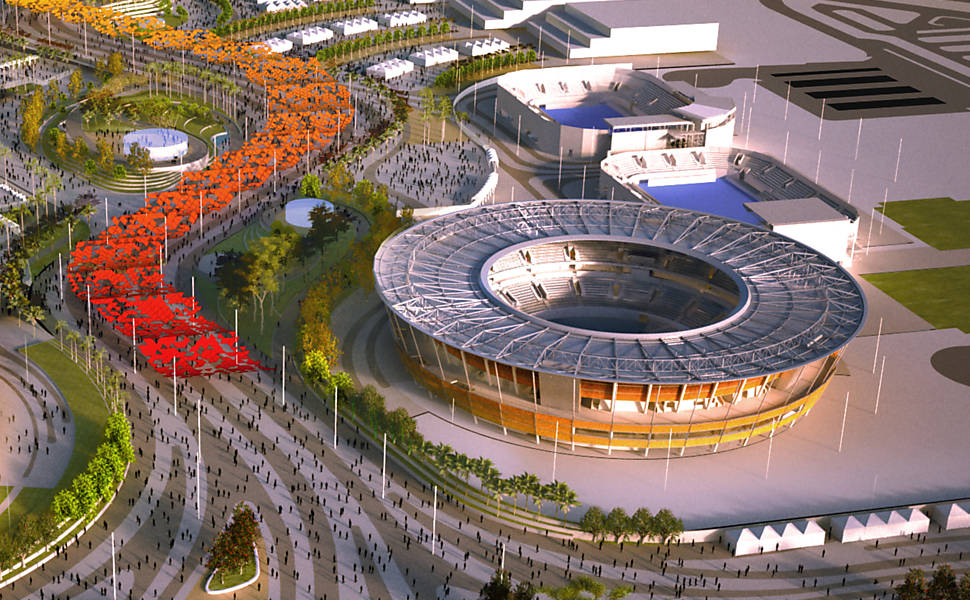Preparations for Olympics Ahead of Those for World Cup but Difficulties Remain
With 100 days to go until the Olympics, Rio is further ahead in its preparation for the event than Brazil was at the same point before the World Cup in 2014.
However, the country as a whole, and the state of Rio de Janeiro in particular, are in a much more precarious economic situation than two years ago. This has had a negative effect on ticket sales.
In addition, the political crisis has projected a negative image of the country to the world, which may lead foreign tourists to abandon plans to visit.
The good news is that work on all the main sporting arenas is nearly finished.
According to a survey by the Municipal Olympic Company (EOM), the Barra Olympic Park, which will host most of the events, is 98% complete.
Within it, the project which is currently furthest behind schedule is the velodrome, where the track cycling events will be held. This is 85% complete.
The EOM survey does not, however, cover the reformation work on existing arenas. There are two arenas which fall into this category which are currently concerning organizers: the National Equestrianism Center in Deodoro, and the Engenhão Stadium.
The Rio city government guarantees that everything will be ready for the Games.
Compared with the World Cup, preparations for the Olympics are much further ahead. At 100 days from the World Cup, four of the twelve stadiums had yet to be completed. Nonetheless, preparations have been far from smooth. Due to the recession, the organizing committee had to cut costs by 30% in October 2015.
"We took longer to sell the tickets and we still haven't sold all of them," said Mario Andrada, communications director at the Rio 2016 Committee. "Several companies haven't used their sponsorship rights as much as we thought they would, or as much as they usually do."
By March, nearly 50% of the tickets had been sold. In the case of the Paralympics, the situation is far worse, with just 10% of the tickets having been sold.
INFRASTRUCTURE
Likewise, in terms of infrastructure, the situation ahead of the Olympics is better than that ahead of the World Cup two years ago. Problems remain, but this is still a useful point of comparison.
100 days before the World Cup, just 20% of promised infrastructure work had been completed. Ultimately, much of the work was put off until after the event, and in some cases, even abandoned entirely.
In Rio, the project about which the authorities are most concerned is Line 4 of the Metro. Not only is it behind schedule, but a new threat to the project has emerged.
Courts have ruled that the state must pay outstanding money to pensioners and retired people. This may affect nearly R$40 million ($11.3 million) from loans which has been earmarked for construction work on the Metro.
The state could not say whether the account relating to work on the Metro would be among those affected. However, the Department for Transport guaranteed on Tuesday (26) that work on the line and the five stations along it would be finished in July.
Despite the improved pace of preparations for the Games, the political crisis and incidents like the recent collapse of part of the Tim Maia cycle path have affected the prestige of Rio on the global stage.
Translated by TOM GATEHOUSE
